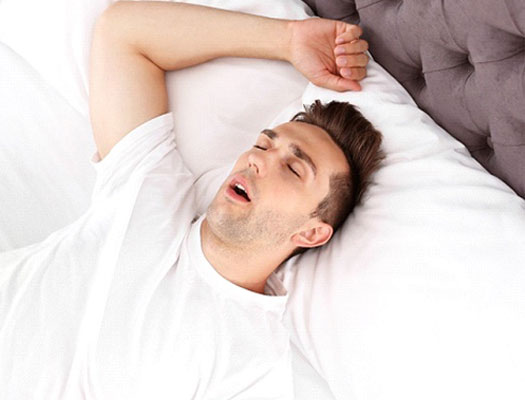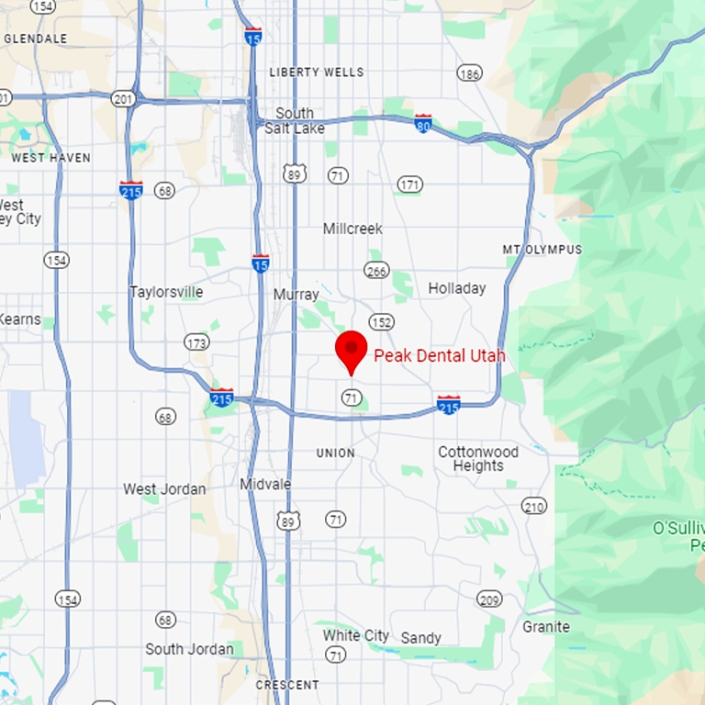Sleep Apnea

Do you wake up frequently throughout the night? Do you feel extremely tired throughout the day, even though you slept long enough? If any of these are true, you could have a sleep disorder, such as sleep apnea.
Sleep apnea is a very common condition that impacts millions. It’s characterized by disruptions in sleep that cause people to wake up abruptly. This disorder is usually driven by airway obstruction, but it can also happen due to changes in the brain.
If you experience some of these symptoms, you may want to consider sleep apnea testing here at Dr. Jeff Buxton. With the help of our experienced sleep doctors and state-of-the-art technology, we can properly diagnose and treat your sleep condition. Sleep better by choosing us today! We’re happy to offer the most reliable sleep apnea testing in Murray, UT.
Sleep Apnea: Brief Overview
Sleep apnea is a condition that causes you to stop breathing during sleep. Your brain then kicks in a survival instinct that wakes you up to resume breathing. While this process keeps you alive, the constant wake-sleep cycle can lead to poor sleep, daytime tiredness, and multiple health problems. Luckily, there are reliable treatments to find relief. If you suspect you may have sleep apnea, schedule an appointment with our sleep specialist today!
Types of Sleep Apnea
It’s important to note there are a few different types of sleep apnea, which include:
Obstructive Sleep Apnea
This is the most common type, and it happens when your airways get completely or partially blocked during sleep. This occurs due to the relaxation of muscles in your face and neck, causing the back of your throat to collapse and close up. You may breathe more loudly and have more body movements while you sleep. This happens because your chest and diaphragm are working harder to help you breathe. Unfortunately, this all can have a drastic impact on your sleep quality. This breathing issue can also lead to less blood flow being pumped to your vital organs, including abnormal heart rhythms.
Central Sleep Apnea
Rather than having a blocked airway, central sleep apnea happens due to changes in the brain. Your brain is unable to send the right signals to help you breathe properly. This stems from problems in your central nervous system.
The last form of sleep apnea is a combination of both obstructive and central sleep apnea. Not only do you experience a blocked airway due to obstruction, but you also have a signaling issue in your brain.
No matter the type of sleep apnea you have, finding the right treatment can help improve your sleep quality and overall quality of life.
Sleep Apnea Symptoms
Sleep apnea can cause a wide variety of problematic symptoms. In fact, these issues can impact your everyday life.
Take a look at the most common symptoms of sleep apnea below:
- Feeling tired during the day
- Waking up sleepy or unrefreshed
- Snoring
- Cognitive problems
- Waking up frequently throughout the night
- Mood changes
- Choking feeling upon waking
- Disruptions in breathing during sleep
- Insomnia
- Trouble falling and staying asleep
- Abnormal breathing patterns
- Feeling awake at night
- Night sweats
- Headaches
- Sexual dysfunction
- Waking up short of breath
Please note that not all of these symptoms are unique to sleep apnea. That said, if you experience any of the above, make an appointment with your doctor to rule out any other health concerns. If your doctor can’t find any other cause for these symptoms, you may have a sleep disorder. Make an appointment with Dr. Jeff Buxton today to get the answers you need!
Risk Factors
Sleep apnea can happen to anyone. However, some risk factors can make you more prone to developing the condition. For example, before age 50, men are at a higher risk of developing sleep apnea. After the age of 50, the condition is more common in women.
Diagnosing Sleep Apnea
There are a few different ways to test for sleep apnea. First, you’ll need to visit a sleep specialist. If they suspect you could have a sleep condition, you will then undergo sleep testing. This process can happen at your home or a sleep clinic. You’ll be hooked up to a breathing monitor and multiple sensors that track your body while you sleep. This tracking method will measure your breathing patterns, heart rate, and blood oxygen levels. An advanced sleep study will also examine your heart, lung, and brain activity, including your arm and leg movements.
Sleep Apnea Treatment
On some occasions, losing weight, changing sleep positions, and using sleep aids can drastically reduce sleep apnea symptoms. However, sometimes more advanced treatments are necessary. One of the most common devices used for sleep apnea is a CPAP machine, which stands for “continuous positive airway pressure.” This device creates more air pressure for your airway and lungs, helping you breathe more efficiently.
There are also other machines that can reduce the symptoms of sleep apnea. Wearing a special oral appliance is another great option.
To find out if sleep apnea is impacting you, contact the experts at Dr. Jeff Buxton today. We offer trusted sleep apnea testing in Murray, UT!

